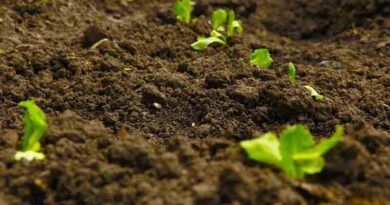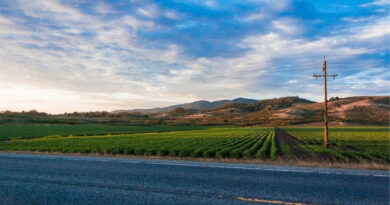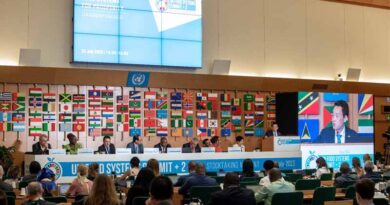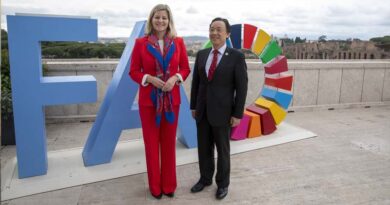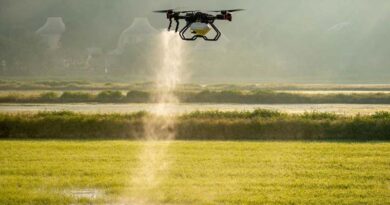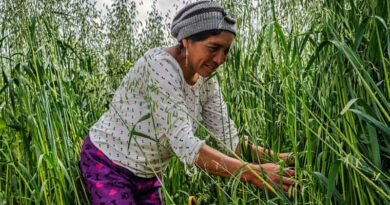During Cornell University visit QU Dongyu emphasizes the important role of young people in agrifood system transformation
10 May 2024, New York: FAO Director-General, QU Dongyu visited Cornell University and its food and agriculture research hub, Cornell AgriTech – a place where science, innovation and agrifood system transformation meets.
Qu was introduced to the Cornell College of Agriculture and Life Sciences (CALS) and within it, the various departments dedicated to the study of agricultural sciences. Faculty members from programs such as the School of Integrative Plant Science, Department of Global Development, Animal Science Department and Integrated Pest Management Program, presented a brief summary in their area of study.
CALS strives to create tangible impacts for communities and contribute to the achievement of a more equitable, sustainable and food-secure world. With over 150 years of expertise, CALS is a leading example of how integrated research and science can bolster food security and agrifood system transformation efforts. Its courses equip students with knowledge and hands-on skills to tackle challenges in areas of food security and agriculture.
“We need to prepare ourselves for the future. We need to prepare the young generation for the future together,” Qu told the university staff.
The Director-General was later welcomed at Cornell AgriTech, the New York State Agricultural Experiment Station, where he witnessed agricultural scientific research and experimentation coalesce.
Qu observed a demonstration of autonomous robots in the research fields, a project demonstrating how robots, Artificial Intelligence and digital technologies can enhance agricultural practices, in this case, utilising remote sensing and plant disease detection. On the tour, he also saw young students learning and training to be the next generation of scientists.
“FAO is always working with farmers because they are essential, and they are everywhere. No matter where you are in the world. That’s why universities play such an important role in transforming our agrifood systems. We need more young people learning agriculture, learning how to farm,” the Director-General said.
“FAO wants to go beyond conceptualizing and go into institutionalizing through partnerships with academic institutions,” he added. Qu continued saying, FAO is invested not only in training young scientists but also young farmers to become leaders of tomorrow. That begins with bridging the rural and urban gap and investing in infrastructure and access to digital technologies in rural areas.
The young generation can help to address some of these key issues in agrifood systems, finding solutions to regenerate the countryside and green the urban. “Our Green Cities Initiative looks at how to build a future city linked with the agrifood system and the environment. We need a new type of city,” Qu said.
The Director-General was also later briefed by PhD students studying topics such as fibre hemp breeding and genetics, apple pathology and crop weed management. This discussion brought to attention how young people were progressing agricultural sciences in their individual field of study but with the common goal of achieving a better food future for all.
Also Read: BASF Launches New Insecticide Efficon With Axalion Active Introduced Under IRAC Group 36
(For Latest Agriculture News & Updates, follow Krishak Jagat on Google News)


